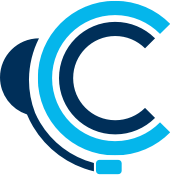April 26, 2023
Don’t Sign Up for Speech Analytics Without an “Out-Clause”
Speech analytics is a great tool for contact centers as it supports several functions, such as keeping track of voice-based interactions between customers and your customer service agents. It is the process of using technology to automatically transcribe, analyze, and extract insights from spoken language. Generally, it involves using software to convert recorded or live speech into text, which can then be analyzed using natural language processing (NLP) algorithms.
Speech analytics tools can be used to analyze various aspects of spoken language, including the words used, the tone and emotion conveyed, and the overall sentiment of the conversation. These tools can also identify patterns and trends in the language used, such as frequently used words or topics. They can help identify areas for improvement in communication or customer service.
Speech analytics is becoming more commonly used in call centers and customer service departments to monitor and improve the quality of interactions between customers and agents. It can also be used in market research to analyze focus group discussions or other types of qualitative data.
Often, companies selling speech analytics solutions acquire customers without disclosing everything about the limitations of their products. While most buyers think they can easily escape such a situation, without proper understanding of capabilities solutions can not meet expectations, leading to chaos.
What Limitations Are We Talking About?
The challenge with buying into an emerging technology like a speech analytics solution when you don’t know what to look for is sellers take advantage of gaps in knowledge. Remember, these companies are in business and may not provide a complete picture of capabilities and costs in order to get a sale. Before committing to any speech analytics solutions, consider the following factors;
Speech Analytics Has Deficiencies
Yes, you read that right. Speech analytics is often portrayed as a perfect software that solves almost all the contact center problems you might have. This is not true. You will frequently read and hear how speech analytics will upscale your company by providing you with 100% accuracy. One potential deficiency of speech analytics is inaccuracy, where the tools may not always accurately capture and interpret the nuances of speech, leading to incorrect insights and analysis. This inaccuracy can be caused by several factors, including:
- Regional accents and dialects: Speech analytics tools may struggle to accurately interpret regional accents and dialects, which can result in misinterpretation of data.
- Context: Understanding the context in which words are spoken is crucial for accurate analysis. However, speech analytics tools may struggle to accurately interpret the meaning of words or phrases based on the context in which they are used.
- Noise and background sounds: Environmental factors, such as background noise or overlapping conversations, can make it difficult for speech analytics tools to capture speech accurately.
- Speech patterns and delivery: Individual speech patterns and delivery can also pose a challenge for speech analytics tools. For example, people who speak quickly or with a lot of pauses or filler words may be more difficult for the software to interpret accurately.
The inaccuracy of speech analytics tools can lead to incorrect insights and analysis, which can have serious consequences for businesses. Therefore, businesses need to consider the limitations of speech analytics tools when making their purchasing decisions.
Speech Analytics Is Costly
While the provider will discuss the base price charged per annum, there are many times hidden costs customers need to recognize. These costs come in the form of things such as frequent maintenance and service fees that can be quite expensive.
The cost of implementing and maintaining speech analytics technology can be significant, especially for smaller businesses. This cost can vary widely depending on the features and capabilities of the software, as well as the size and complexity of the organization implementing it.
Besides the cost of purchasing the software, additional costs may be associated with hardware and infrastructure, such as servers and storage space. There may also be costs associated with training staff on how to use the software effectively, as well as ongoing maintenance and support.
For smaller businesses with limited resources, the cost of implementing top-of-the-line speech analytics technology may be prohibitive, and they may need to consider less expensive alternatives. These alternatives could include using simpler analytics tools, such as basic call monitoring or manual transcription and analysis.
However, some organizations may find that the benefits of speech analytics technology outweigh the costs, particularly if they handle a high volume of customer interactions or have complex communication needs. In these cases, the investment in speech analytics technology can pay off in terms of improved customer satisfaction, increased sales, and more effective customer communication overall.
For sound decision-making with such an investment, it is important to quantify the benefits and be diligent in identifying all of the costs before investing in expensive speech analytics tools. Take care that the solution selected offers more than minimal functionality and provides crucial advantages for your company. It is advisable to develop a structured set of requirements and ask the provider relevant questions supporting those requirements to avoid future misalignment of expectations, frustrations, and costs.
Results in Over-Reliance on Technology
Over-reliance on technology is a potential disadvantage of speech analytics because it can lead to a neglect of human intuition and judgment. While speech analytics tools can provide valuable insights and analysis, they are not infallible. They can make errors in data interpretation or miss important contextual information that a human analyst may be able to pick up on. Additionally, speech analytics tools may not always be able to account for the emotional tone or nuances of speech, which can be important in understanding customer sentiment.
Furthermore, over-reliance on technology can lead to a lack of human connection with customers. If companies rely solely on speech analytics to understand their customers, they may miss out on the human connection that comes from the understanding of interacting with customers directly. This can result in a lack of empathy and understanding of customers’ needs and desires, ultimately leading to a less effective customer experience.
Therefore, while speech analytics can provide valuable insights, it is important to balance its use with human intuition and judgment to ensure a more comprehensive understanding of customer needs and sentiments.
Why Is an Out-Clause Important?

Most speech analytics providers offer long-term contracts, some going for as many as ten years. Such contracts limit the client’s choices and bind them to use and pay for the specified speech analytics solution until the agreed term expires. This can put clients at great risk. Let’s put it into context for easy understanding.
Suppose a speech analytics provider entices you with their offer, and you decide to sign this contract. However, somewhere along the way, you realize that the provider didn’t disclose all the details or the solution is not providing the expected/promised benefits. Because you were enticed by the benefits speech analytics can deliver, you may have underwieghted the downsides which have come to haunt you. It is important to negotiate a contract so that in the event of underperformance, you have the right to leave and find another provider. Without these protections, you will be bound by the contract, you have to pay the provider for the remainder of the contractual term even with the new realization.
This is where an out-clause comes in. An out-clause, also known as an exit clause, is a contractual provision that allows one or both parties to terminate the agreement under certain specified conditions.
Out-clauses can be included in a wide range of contracts, including employment, service, and lease agreements and are especially valuable for contracts with long terms or where an emerging or immature technology or business process is being purchased. An out-clause provides a mechanism for one or both parties to exit the agreement if certain circumstances arise, such as a breach of contract, a change in business conditions, or a failure to meet specified performance metrics.
The specific conditions under which an out-clause can be exercised will vary depending on the terms of the contract. For example, an employment agreement may include an out-clause that allows either party to terminate the agreement with a certain amount of notice, while a service contract may include an out-clause that allows the client to terminate the agreement if the provider fails to meet certain performance standards.
If you are considering a long-term contractual commitment for speech analytics, consider an out-clause element for your contract, like the example below:
“This contract shall be for an initial period of 24 months from the commencement date. Either party will have the right to terminate the contract by giving written notice to the other party at least 3 months before the end of the initial period of the contract or at least 30 days at any point after the end of the initial period.”
The out-clauses defining contract termination depend on what’s best for both parties but from a categorical perspective, the major classes of termination clauses include the following:
- Termination upon expiry of the term or completion of the contract
- Termination for convenience or without mentioning any reasons
- Termination upon breach of the contractual terms
Out-clauses can provide important protections for both parties in a contractual agreement, as they allow for flexibility and help mitigate risk. However, it is important to carefully consider the terms of any out-clause before entering into a contract to ensure that the conditions under which it can be exercised are clear and reasonable.
Avoid Disappointments; Try the Call Criteria Speech Analytics Solution with no Long-term Contracts
Call Criteria offers the best speech analytics solution on the market. Unlike other providers, we acknowledge that speech analytics can never be 100% accurate, no matter how advanced. We don’t oversell our product but instead, inform our prospects of what they should expect.
Our extraordinary human Quality Assurance and Artificial Intelligence combination separates us from other providers. Once the speech analytics software gives its report, our human QAs countercheck to ensure everything is accurate. When speech analytics is used alone, you can attain up to 70% accuracy. If combined with human quality assurance, you are guaranteed 99.9% accuracy.
We provide these services to all our clients at a relatively lower cost. With Call Criteria by your side, you will realize improved ROI as you will be spending less on call center quality assurance while getting top-notch services. Additionally, we don’t commit clients to unnecessary long-term contracts.
Want to know more about Call Criteria Speech Analytics Solutions? Contact us, and we will reach out with the relevant information.
Final Thoughts
While speech analytics can provide valuable insights into customer behavior and communication patterns, it is important for clients to carefully consider the potential risks and disadvantages before signing up for this technology. One of the key considerations for any speech analytics contract is the inclusion of an out-clause, which allows for the termination of the agreement under certain specified conditions.
By including an out-clause in the contract, clients can ensure that they have a mechanism for exiting the agreement if the speech analytics technology fails to meet their needs or unforeseen circumstances arise. Without an out-clause, clients may be locked into a long-term commitment that is not flexible or adaptable to changing business conditions.
In short, clients should not sign up for speech analytics without an out-clause because it gives them a critical safeguard against potential risks and allows for greater flexibility and control over their contractual agreements. By taking the time to carefully consider the terms of any speech analytics contract and negotiating for an out-clause, clients can ensure that they are making a smart and informed investment in their business.









